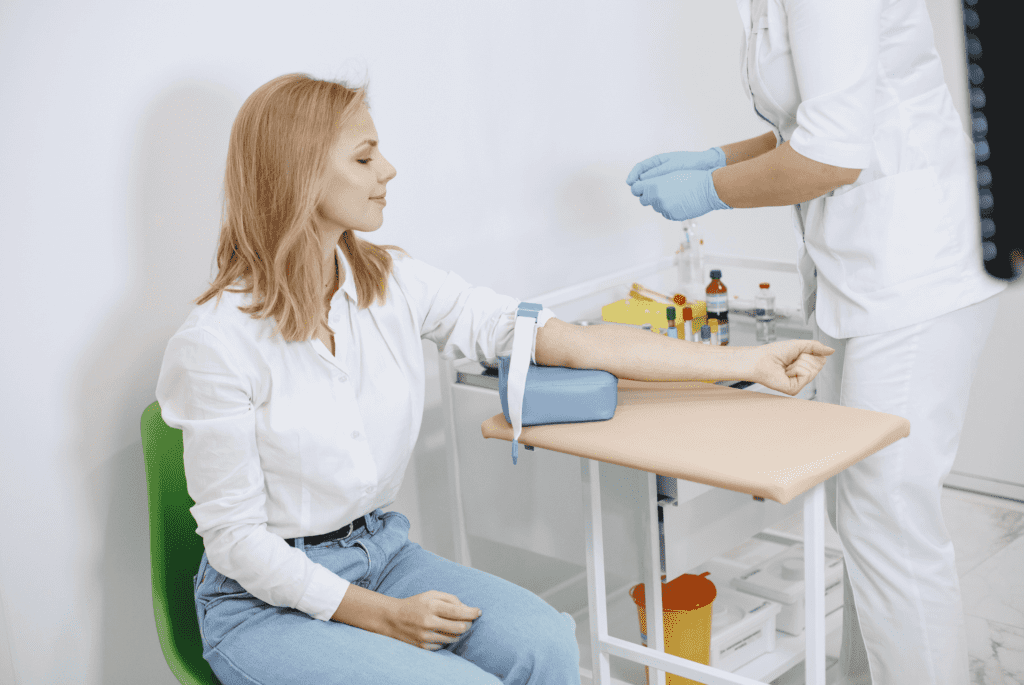Blood work is the diagnostic testing of your blood in a laboratory. Certain blood tests require fasting beforehand. If your healthcare provider instructs you to fast prior to your blood work, it means you should not eat or drink anything (other than water) for the specified time before your blood test.
Why should you fast before a blood test?
Fasting before blood work helps improve the accuracy of your blood test. When you eat and drink normally, the nutrients from those foods and beverages are absorbed in your bloodstream and can alter the results of certain types of blood tests. The vitamins, minerals, proteins, and carbohydrates that make up all food and beverages can cloud test results.
Which blood tests require fasting?
Blood tests are an effective way for your healthcare provider to check on your health. You may need to fast for the following blood tests:
- Basic metabolic panel: measures your overall body function.
- Blood glucose test: measures the glucose levels in your blood.
- Liver function test: diagnose or monitor liver disease or damage.
- Lipid panel: monitor and screen for your risk of cardiovascular disease.
- Renal function test: measures your kidney function.
Not all blood tests require fasting beforehand, but many do.
How long should you fast for?
You will typically need to fast for 8-12 hours before your blood test, however the amount of time you need to fast will vary depending on the test. A great tip is to schedule your blood test for the morning, so the majority of your fasting is done overnight while you are asleep.
You can drink water before your blood test, however you should avoid lemon water and carbonated water. You should only consume plain, regular water during your fast. Drinking plenty of water can help to ensure you receive accurate results. Dehydration can affect certain blood tests.
Can you drink black coffee before a blood test?
You should only drink water during your fast. Coffee, juice, soda, and other beverages can be absorbed into your bloodstream and can affect your results.
Black coffee, tea, and other caffeinated beverages are diuretics, which means they may cause the need to urinate more frequently. Because of the more frequent urination, they may have a dehydrating effect and cause blood test results to be inaccurate.
Can you take medications during your fast?
You should ask your healthcare provider if you should take medications during your fast. Most of the time you can continue taking your medications, however you may need to avoid certain medicines, especially if they need to be taken with food.
Vitamins and supplements may affect certain lab tests, so they shouldn’t be taken the morning of your blood test.
When can you eat and drink normally again?
You can eat and drink normally as soon as your blood work is over. If you accidentally eat or drink something other than water before your test, you should let your health care provider know so you don’t end up doing the test unnecessarily.
Depending on which test was ordered, you may be able to go ahead and have your blood drawn, and your health care provider can interpret your results accordingly.
If you are scheduled for blood work at our lab and accidentally eat or drink prior to your test, please reach out to our team so we can assess whether or not your test should be rescheduled.
